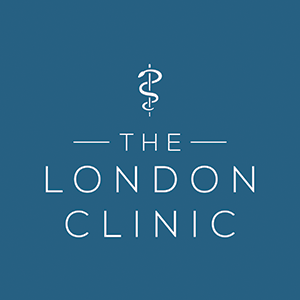Everything You Need to Know About IVF
IVF is necessary when you and your partner experience unexplained and other infertility issues.
Other fertility treatment options such as Intra-Uterine Insemination (IUI), Intra-Cytoplasmic Sperm Injection (ICSI), and Assisted Laser Hatching are offered to solve infertility issues to achieve a successful pregnancy.
Key Takeaways
- IVF provides a suitable solution for you and your partner if you are experiencing unexplained infertility.
- There are 5 steps in IVF; stimulation, egg retrieval, insemination, embryo culture and transfer.
- Your age and other health conditions plays a key role in the success of IVF.
What is IVF?
In vitro fertilization (IVF) is an assistive reproductive technology (ART) that involves fertilizing mature eggs with sperm in a lab.
Depending on the situation, IVF can use the following:
- Your eggs and your partner’s sperm
- Your eggs and donor sperm
- Donor eggs and your partner’s sperm
- Donor eggs and donor sperm
- Donated embryos
Why is IVF Important
IVF may be considered the best treatment option if you and your partner have been diagnosed with:
- Poor egg quality
- Low sperm count
- Endometriosis
- Uterine fibroids
- Unexplained infertility
- Blocked or damaged fallopian tubes
- Reduced ovarian function
- Genetic diseases
For women over 40, IVF can be offered as a primary solution. The fertility treatment option can be provided to you if you are experiencing certain health conditions.
Do you need to get started on IVF? Talk to a patient support specialist to get you started on your fertility journey.
What are the IVF Tests?
Before you and your partner start IVF, you’ll need a comprehensive medical exam and fertility tests, which are:
- IVF consultation
- A uterine exam: Pap test and mammogram (if over 40).
- A semen analysis for male
- STIs and other infectious diseases screening.
- Blood and urine tests and ovarian reserve testing.
- You will be given instructions on how to administer fertility medications.
- Genetic carrier screening.
- Uterine cavity evaluation
Want to speak to a top fertility specialist? Talk to a patient support specialist Now!
What Are the Questions to Consider Before Beginning a cycle of IVF?
Before beginning IVF, ask the following questions:
- How long should we try to conceive naturally before IVF?
- What’s your IVF success rate?
- What’s your live birth success rate per year?
- What’s your pregnancy success rate per embryo transfer?
- How many live births are multiples?
- Do you allow for gender/sex selection?
What Are the 5 Steps in IVF?
Here are the 5 steps in IVF:
1. Stimulation
To increase the chances of developing a viable embryo during IVF, the doctor will prescribe fertility medicines to boost the number of eggs your body produces.
2. Egg Retrieval
In this step, the fertility doctor removes the egg from the follicle using an ultrasound probe and a needle guided through your vagina.
3. Insemination
When the semen sample is ready, it will be put through a unique washing process, which separates the sperm from the seminal fluid.
A healthy-looking sperm will be chosen and inseminated with the sperm using a needle.
4. Embryo Culture
The fertilized eggs will be monitored to ensure they’re dividing and developing. The fertility specialist will conduct genetic testing on the embryos.
5. Embryo Transfer
After 3 to five days after fertilization, the embryos are big enough and can be implanted.
What Are IVF Success Rates in Kenya?
Compared to success rates in other nations, Kenya's IVF success rate is high at 70 to 80 % of women under 35.
Factors affecting IVF success rates are:
- Your age
- Your height and weight.
- Number of previous births.
- The total number of pregnancies.
- Either you are using your eggs or donor eggs.
- No. of IVF cycles.
- Other health conditions
- The cause of infertility.
Do you need IVF? Talk to a patient support specialist and get connected to top IVF centres

What Are the Risk Factors Associated with IVF?
The following are the risk factors associated with IVF:
- Multiple births
- Premature delivery
- Miscarriage
- Ectopic pregnancy
- Complications during egg retrieval:
- Ovarian hyperstimulation syndrome (OHSS)
What Are the Common Side Effects of IVF?
Some of the common side effects of IVF may include:
- Nausea and vomiting
- Hot flashes
- Headaches
- Enlargement of their ovaries
- Abdominal pain
- Bruising from IVF injections
- Constipation
- Bloating
- Cramping
- Breast tenderness
- Spotting
Why Does IVF Fail?
Here are some of the reasons why IVF may fail:
- When premature ovulation occurs.
- No eggs developing.
- Too many eggs are developing.
- No egg is being fertilized by sperm.
- The sperm quality.
- No embryo implantation.
- Egg retrieval or embryo transfer complications.
How Much Does IVF Cost in Kenya?
IVF cost in Kenya starts from 430,000 KES to 480,000 for Self-cycle IVF and for donor egg IVF respectively. Although the cost of IVF may vary from facility to facility and the kind of procedure and the cause of infertility.
The fertility clinics and hospitals in Kenya, have experienced fertility specialists and offer a high IVF success rate to couples and individuals desiring to achieve their dream of parenthood
Are you planning to visit our partner hospitals for your fertility treatment? Talk to a patient support specialist and get a FREE cost estimate of your treatment.










